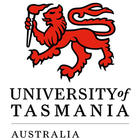Bachelor of Business and Bachelor of Laws
- Posted by University of Tasmania (UTAS)
- Home
- Courses
- University of Tasmania (UTAS)
- Bachelor of Business and Bachelor of Laws
Bachelor of Business and Bachelor of Laws
The Bachelor of Business is an accredited course of study. The aim is to enable students to critically apply routine discipline knowledge, while understanding the theoretical underpinnings, and to clearly communicate discipline advice and ideas. Students develop skills in problem solving and decision making for straight forward situations in practice,…
Categories
COURSE DESCRIPTION
The Bachelor of Business is an accredited course of study. The aim is to enable students to critically apply routine discipline knowledge, while understanding the theoretical underpinnings, and to clearly communicate discipline advice and ideas. Students develop skills in problem solving and decision making for straight forward situations in practice, using social, ethical, economic, regulatory, and global perspectives. Bachelor of Business graduates will be able to contribute to their profession and to society within a culture of independent lifelong learning. The Bachelor of Business provides the opportunity for graduates to acquire an understanding of business and to develop a coherent body of knowledge in various majors, which will allow them to meet the entry requirements necessary for associate membership of the relevant professional bodies.
The Bachelor of Laws delivers more than just in-depth knowledge of fundamental principles. The program embeds all the practical legal skills you need to become a successful practitioner, whether that is in law, business, government, or the community legal sector, and in Tasmania and beyond. You will have multiple opportunities to develop and advance skills in advocacy, legal reasoning and critical thinking, communication, research, ethics and social responsibility, teamwork, and self-reflection.
Career outcomes: A double degree can help you build a unique set of skills that will help you stand out in a competitive employment market. When you graduate from a double degree you will receive a separate degree certificate (also called a testamur) for each component course.
Course structure: In the 5 year double degree you will complete a total of 500 credit points comprising 300 credit points from one course and 200 credit points from another.
REQUIREMENTS
Admission to undergraduate courses at the University of Tasmania requires the completion of qualifications equivalent to a 12th year of education in Australia.
Most of our undergraduate programs have the following English language requirements.
IELTS (Academic) – 6.0 (no individual band less than 5.5)
TOEFL (iBT) 72 (no skill below: Reading 10; Listening 9; Speaking 16; Writing 19)
PTE Academic 50 with no score lower than 42
UTAS English for Academic Purposes – EAP2 – 60% (no individual score less than 55%)
Cambridge CAE (Certificate of Advanced English) – B Grade
Cambridge CPE (Certificate of Proficiency in English) – C Grade
Cambridge BEC (Business English Certificate) Higher – C Grade
EDUCATIONAL INSTITUTION
The University of Tasmania was officially founded on 1st January 1890 and is located at Sandy Bay, Tasmania. In addition to the main campus at Sandy Bay, it also operates out of the Newnham Campus and the Cradle Coast Campus. The most popular courses offered are the environmental studies that include wilderness management, marine sciences and indigenous studies in Tasmanian literature. Other unconventional courses include agriculture development, studies on the community and population and ocean study programs. The university also comprises of a Music Conservatorium, Art school and a School of Clinical studies.
The University of Tasmania was officially founded on 1st January 1890 and is located at Sandy Bay, Tasmania. In addition to the main campus at Sandy Bay, it also operates out of the Newnham Campus and the Cradle Coast Campus. The most popular courses offered are the environmental studies that include wilderness management, marine sciences and indigenous studies in Tasmanian literature. Other unconventional courses include agriculture development, studies on the community and population and ocean study programs. The university also comprises of a Music Conservatorium, Art school and a School of Clinical studies.




